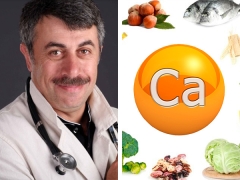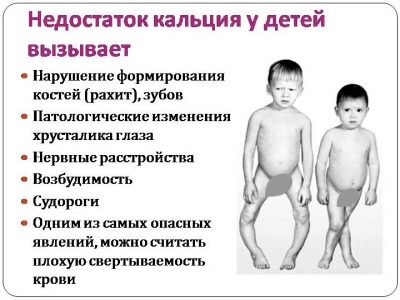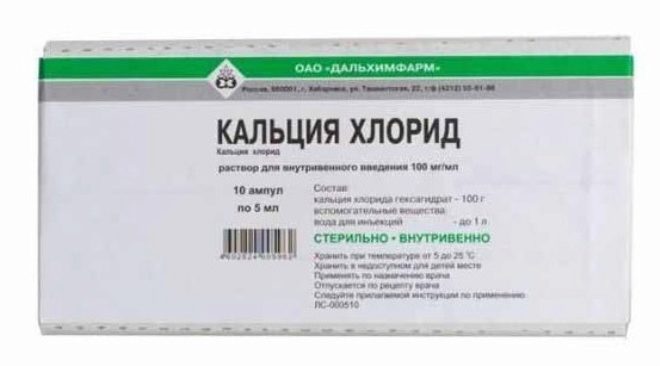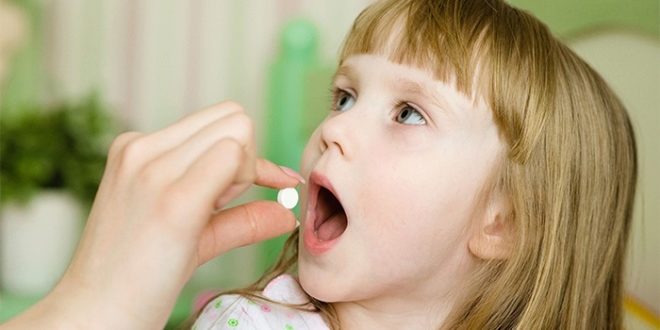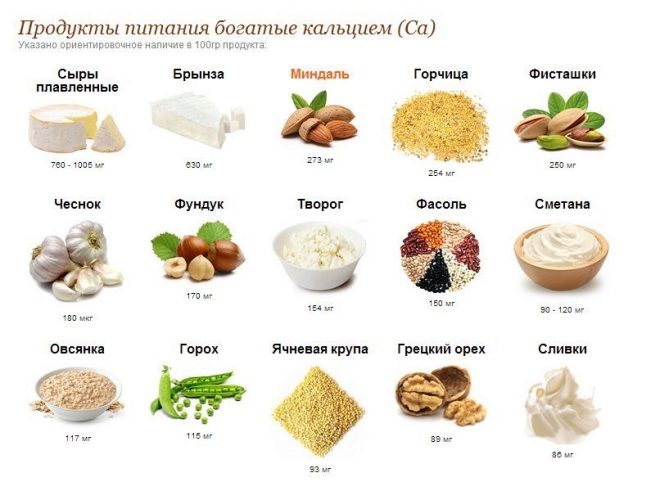Dr. Komarovsky about calcium
Calcium deficiency in the children's body can cause a lot of trouble - from rickets and neurological disorders to thyroid dysfunction, heart function, musculoskeletal system and development of the bone skeleton.
What is meant by lack of, as well as how to give the child the necessary substance for normal growth and development, says a well-known pediatrician Yevgeny Komarovsky.
About the problem
Calcium deficiency occurs for two reasons: either it is not enough in food, or it is poorly absorbed in the intestine and is not absorbed to the desired extent. It is generally accepted that milk and milk products are necessarily required for the child to get calcium - says Evgeny Komarovsky. Therefore, there is no need to feed milk to children who, for example, do not digest it well, by hook or by crook. The required substance is contained in sufficient quantity in nuts, in fresh greens, in sea fish, in many vegetables and even fruits.
The release of Dr. Komarovsky’s transfer of calcium can be seen in the next issue.
If there are enough minerals and microelements in the baby’s food, and there is still a deficiency, the reason may be hypovitaminosis D. Sometimes, with calcium deficiency, it is possible to establish a direct link between this deficiency and thyroid gland disorders.
If there is a shortage, special medicines are prescribed to the child - calcium preparations. Usually, doctors recommend taking them in certain dosages for children with very specific problems:
- Rickets.
- Pathologies associated with thyroid function.
- Allergy (both acute and chronic forms).
- Diseases of the hematopoietic system, in particular, coagulation disorders.
- Diseases of the skin (eczema, dermatitis).
- With hypocalcemia during growth of teeth, bones (at very fast growth rates).
For home use, practice drugs in pills. Sometimes doctors administer Ca salts intravenously, but this refers to emergency first aid, which may be necessary in case of severe bleeding, convulsions, an acute and severe allergic reaction to something.
The truth and myths about calcium can be seen in the next video.
Calcium deficiency can be determined by a comprehensive study of the blood of the child. It is reasonable to take pharmaceutical drugs Ca only when doctors on the basis of analyzes establish the diagnosis - hypocalcemia. In all other cases, it is not necessary to take drugs, to provide a child with sufficiently balanced and correct nutrition, including in his diet foods with a high content of this vital substance (the list of foods is given below).
Calcium preparations
Calcium gluconate
Calcium gluconate is the most well-known drug, which is available in tablets and in the form of a solution for intravenous injection. Tablets of gluconate Ca on the shelves of pharmacies are available in two dosages - 250 and 500 mg. In order for children to take pills more readily, they are released not only in a “pure” form, but also with various fruit supplements.
Sometimes very thoughtful parents read in the instructions for the drug "allowed for subcutaneous administration." It is strictly forbidden to do this, the instruction describes the option of providing urgent assistance to adults, but not children.
In general, calcium gluconate is the most common drug prescribed to children.
Calcium chloride
Calcium chloride is a solution for pricks of different concentrations (10% and 2.5%). It is administered intravenously. For home use, pharmacists produce a special dosage form that is most suitable for children — a solution for drinking at a concentration of 5% with the addition of tasty fruit juice. Prick Ca chloride should only be a medical professional, as it is important to get there right, because this chemical compound causes severe irritation of local tissues.
Komarovsky does not recommend giving the drug in the form of drops for drinking, as this remedy often causes severe irritation of the tender children's stomach. This only applies to medication. Now there are children's products for sale with this substance, and their use does not cause any irritation. For example, you can buy cottage cheese with calcium chloride, but the content of the substance we need in it does not even closely correspond to the daily rate.
Calcium lactate
Calcium lactate is a drug in pills. There is a single dosage - 500 mg. Calcium itself in the preparation is significantly more than in gluconate, and therefore it is quite convenient to take it (less pills will be eaten as a result).
There are other drugs:
- Calcium carbonate,
- Calcium phosphate,
- Calcium Acetate,
- Calcium citrate
- Calcium glycerophosphate.
However, these drugs are not widely used because they have no advantages over gluconate and lactate, which were discussed in detail above.
Daily age norms
The daily need for calcium for a child who is not yet 1 year old is 250-270 mg. Babies from 1 to 3 years old require twice as much - about 500 mg. For the normal development of a child aged 4 to 8 years, at least 800 mg of a substance is required per day. Children over 8 years old - from 1000 to 1300 mg per day.
How to use
The doctor prescribes calcium supplements for the little patient, parents buy them at the pharmacy, and then - solid questions. Judge for yourself - to “supply” an adult with a dose of calcium gluconate, 15 grams of the drug are required (this dosage is often prescribed for nursing mothers). To take this dose, a poor lactating mother needs to drink 30 tablets at a dosage of 500 or 60 tablets at a dosage of 250. Such a number of tablets cannot be eaten at all by a resilient adult. The same problems arise with children's use of the drug. It is not clear what prevents pharmacists from developing dosages above 500 mg, but the reality is exactly that.
According to the standards mentioned above, a child under one year should be given 3 tablets of 500 mg. A child from 1 to 4 years old - 6 tablets, a child under 8 years old - from 6 to 12 tablets, and a child older - more than 22 pieces. Agree, the task is not simple. Therefore, Komarovsky advises to divide the daily dose into 2-3 doses (so it will be easier for the crumbs to master the minimum, and it will be easier for the parents to feed him this minimum). Side effects, according to the doctor, when taking gluconate usually does not occur.
Product Memo
- Nuts;
- Milk;
- Fresh greens;
- A fish;
- Sesame seeds;
- Beans;
- Dried apricots;
- Figs;
- Raisins;
- Grain bread;
- Veal;
- Chicken eggs.
